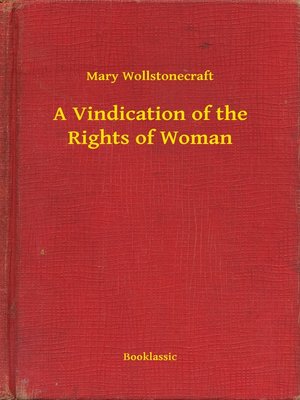
He observes as early as 1697, "We reproach the sex every day with folly and impertinence, while I am confident, had they the advantages of education equal to us, they would be guilty of less than ourselves."1 As women and their education were very popular topics among the frequenters of the salons, Rousseau was often drawn into their discussions as a consultant. In his Essay on Projects, Daniel Defoe suggests an academy for women where they might study whatever they chose.

In her Serious Proposal to Ladies of 1694, Mary Astell advocated a convent where serious-minded women might retire for study and contemplation. Makin published An Essay to Revive the Ancient Education of Gentlewomen. Nearly a hundred years before Emile, Mrs.

Certainly he broke no ground regarding the topic of women. These so contradict his plan for Emile that it becomes necessary to place them in the framework of his time and the particular prejudices of Rousseau. Rousseau outlines his theories for the ideal education for women in Chapter V of Emile written between 17. Her disappointment in Rousseau was a main influence on Wollstonecraft's best-known work, A Vindication of the Rights of Woman. Admiring his sentiment, Mary Wollstonecraft applauded Rousseau's scheme for Emile but deplored the neglect of Emile's perfect wife, Sophie. Rousseau describes his methods in Emile, the story of a boy's upbringing in natural state. Today he has enormous influence on accepted educational doctrines. The salons of Jean Jacques Rousseau's day greatly admired his theories, including his advocation of breast-feeding and his concept of natural education. Mary Wollstonecraft, A Vindication of the Rights of Women "The neglected education of my fellow-creatures is the grand source of the misery I deplore." "Give, without scruples, a woman's education to women, see to it that they love the cares of their sex, that they possess modesty, that they know how to grow old in their mnage and keep busy in their house." Education According to Rousseau and WollstonecraftĮssay that discusses Jean Jacques Roussea and Mary Wollstonecraft's views toward the education of women, highlighting the "novel" idea that men and women should be educated together.


 0 kommentar(er)
0 kommentar(er)
